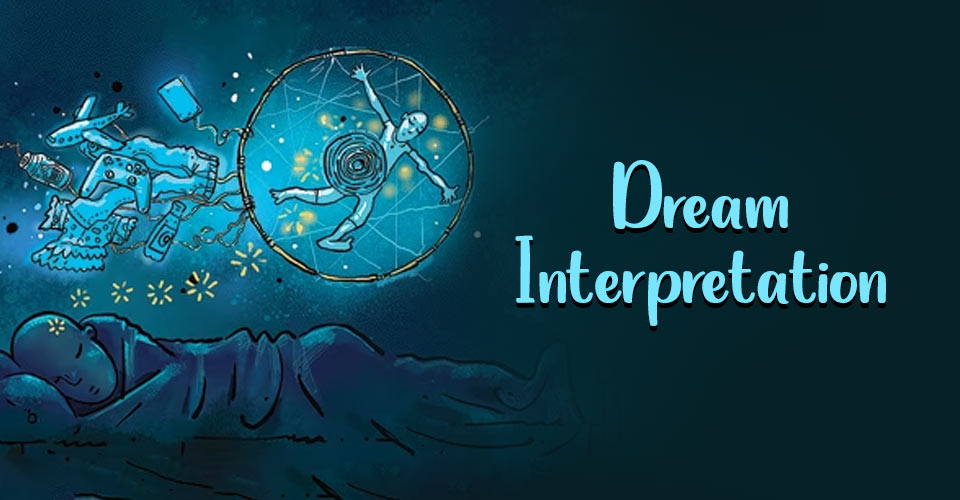The post is developed in partnership with BetterHelp.
Have you ever woken up feeling shaken by a vivid or bizarre dream? Do you often wonder what on earth your sleeping brain is trying to tell you? You’re not alone. Dreams have fascinated humans since the beginning of time.
Ancient cultures saw them as divine messages, but what about today? Can dreams offer insight into our own mental and emotional well-being? Science says yes. If you’re ready to explore the mysterious world of dreams, this article will offer a peek into your subconscious mind.
What are Dreams, Anyway?

Picture your mind as a bustling movie studio, constantly shooting and editing footage. It’s a nonstop process, even when you’re asleep. Dreams are essentially snippets of this mental movie, a mix of thoughts, emotions, memories, and sensory experiences.
They occur most vividly during REM sleep (the rapid eye movement stage). It gets interesting because our rational, logical mind takes a backseat while we dream, allowing for wild and unexpected scenarios to play out.
Why do we dream? Scientists have several theories. Some believe dreams help us process emotions, consolidate memories, or even practice for potential threats (who hasn’t dreamt about running late for an exam?). Others see dreams as a random byproduct of brain activity. But one thing’s for sure: dreams offer a unique glimpse into the depths of our subconscious.
The Language of Dreams
Dreams don’t always make sense, do they? You might be flying one minute, then suddenly back in school, naked! This is where symbolism comes in. Our dreaming minds communicate through images, sensations, and emotions rather than straightforward logic. Think of it like your subconscious speaking its own secret language.
Common dream themes include falling, being chased, losing teeth, or even the dreaded ex-partner making an appearance. While some dreams may seem random, others tap into anxieties you experience while awake. Your ex popping up doesn’t mean you want them back — it could instead symbolize unresolved feelings about the relationship or a fear of repeating past patterns.
Dream Interpretation: Art or Science?

Should you rush to Google the meaning of every flying dream? There’s no one-size-fits-all manual for dream interpretation. The same symbol can mean different things to different people. The trick is to approach it like an intricate puzzle and look for personal connections.
Here are some tips:
- Gather the clues: Write down your dreams right when you wake up. Record the key elements, the emotions you felt, and any connections to your waking life.
- Play detective: Ask yourself, “What does this image or situation remind me of?” Is there a problem you’re wrestling with? A feeling you’ve been suppressing?
- Be kind to yourself: Avoid judgment, even if your dreams feel weird or disturbing. Your subconscious might be trying to bring something to your attention.
If dreams about your ex cause anxiety or distress, they might be pointing to a need to let go of the past. Online platforms like BetterHelp can offer guidance and support from licensed therapists to help you process these emotions and move forward.
The Power of Dreams
Can dreams be used for personal growth and better mental health? While they shouldn’t replace professional guidance, they can still be valuable tools.
Here’s how:
- Lucid dreaming: Lucid dreaming involves becoming aware that you’re dreaming while still asleep. For some, it’s a chance to face fears playfully or explore creative potential.
- Dream incubation: Have you ever wanted to dream about a specific topic? You can try focusing on an issue or question before bed, inviting your dreaming mind to offer insights.
- Inner dialogue: Whether unsettling or uplifting, your dreams reflect a part of you. Paying attention can spark self-reflection and emotional awareness.
Nightmares: When Dreams Turn Dark

Unfortunately, the journey through dreamland isn’t always a pleasant one. Nightmares, those intensely frightening and disturbing dreams, can leave us feeling shaken and anxious long after waking. While the occasional bad dream is normal, recurrent nightmares might signal underlying stress, trauma, or mental health conditions.
If nightmares interrupt your sleep, don’t despair. There are things you can do:
- Talk it out: Sharing your nightmares with a trusted friend, family member, or therapist can help process the fear and lessen their emotional impact.
- Rewrite the script: Techniques like imagery rehearsal therapy involve changing the nightmare’s ending in your mind while awake, empowering you to take control of the narrative.
- Address the root cause: If nightmares stem from anxiety or trauma, professional therapy can help you develop coping mechanisms and heal those underlying wounds.
Harnessing the Wisdom of Dreams (Even the Weird Ones!)
Imagine you dreamt you were a giant pineapple with tap-dancing shoes. While it makes absolutely zero sense, even seemingly absurd dreams can hold valuable clues. Here’s how to find meaning in the blurry line between dreaming and waking life:
- Embrace the ridiculous: The weirder the dream, the more it signals that your logical mind is switched off. Let go of expectations and have some fun with the symbolism.
- Focus on feeling: What was the dominant emotion? Joy, dread, absurdity? The emotional tone of a dream is often more revealing than specific details.
- Free association: Say the first thing that comes to mind when you think about a dream image. Don’t censor yourself. Just let the associations flow. You might be surprised at the connections you uncover.
Dreamwork as a Tool for Self-Care

Paying attention to your dreams is an act of self-care. Here’s how you can nurture the habit:
- Dream journal: Keep a notebook by your bed to jot down your dreams upon waking. Even fragments or hazy impressions are worth recording.
- Dream groups: Joining a dream group offers shared exploration and a supportive space to discuss your dream experiences.
- Creative expression: Drawing, sketching, or writing inspired by your dreams can spark unexpected insights and add a playful element to your dream exploration.
Whether they bring joy, fear, confusion, or pure fascination, dreams remind us of the extraordinary power of our minds. Far from being mere mental fluff, they offer a portal to the depths of our being. By embracing your dreams, you can embark on a thrilling journey of self-discovery.
Tapping into the Extraordinary
Dreams are like windows into another dimension of ourselves. Sometimes, they’re chaotic and confusing, but they can also be beautiful, profound, and even inspiring. While scientists continue to unravel the mysteries of the dreaming mind, one thing remains clear: the potential for self-discovery is limitless.
So the next time you wake up disoriented from a particularly bizarre dream, don’t dismiss it. Welcome it as a fascinating piece of the puzzle that is you. With a little curiosity and openness, dreams can become a source of unexpected wisdom, guiding you toward a deeper understanding of your own incredible mind.



